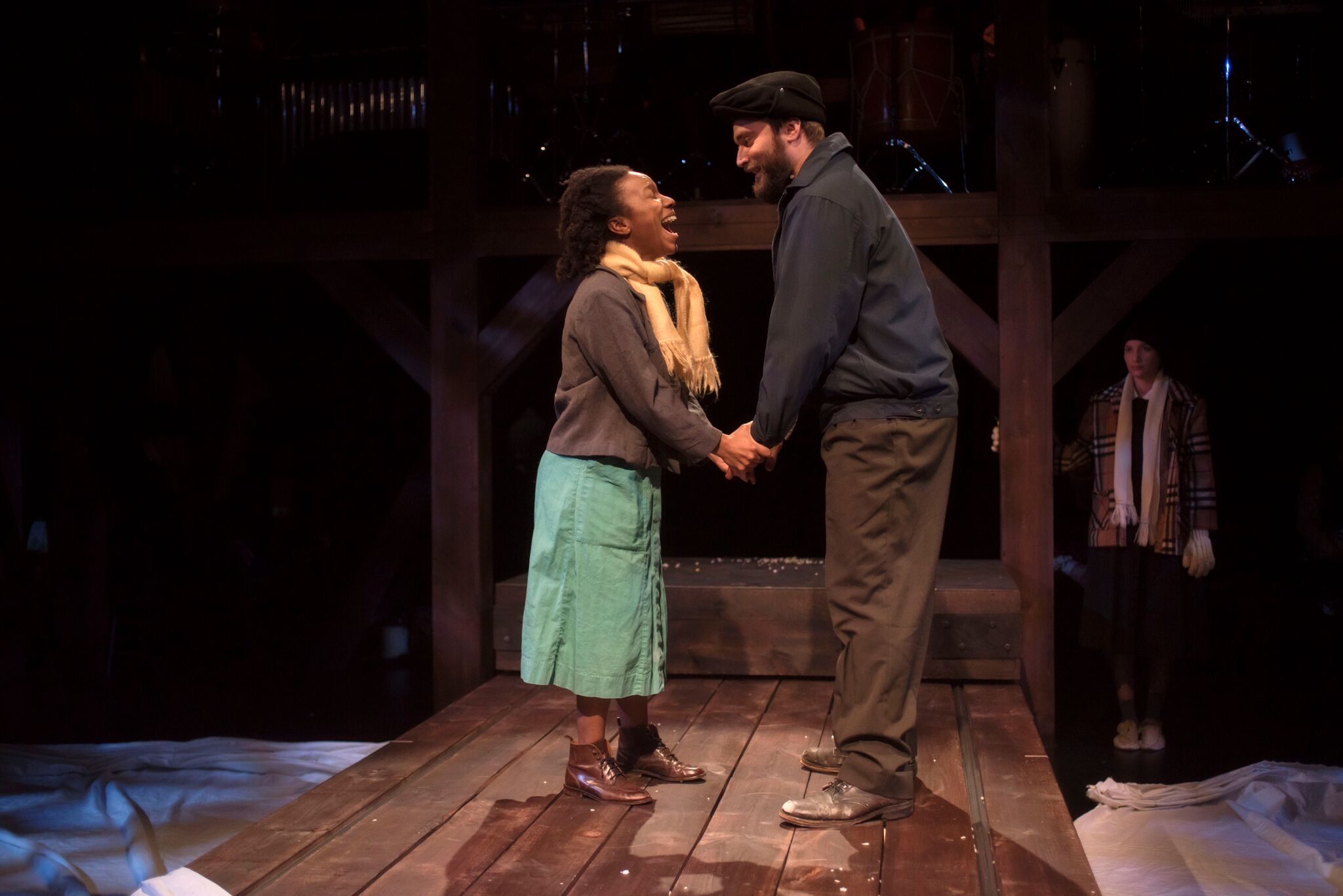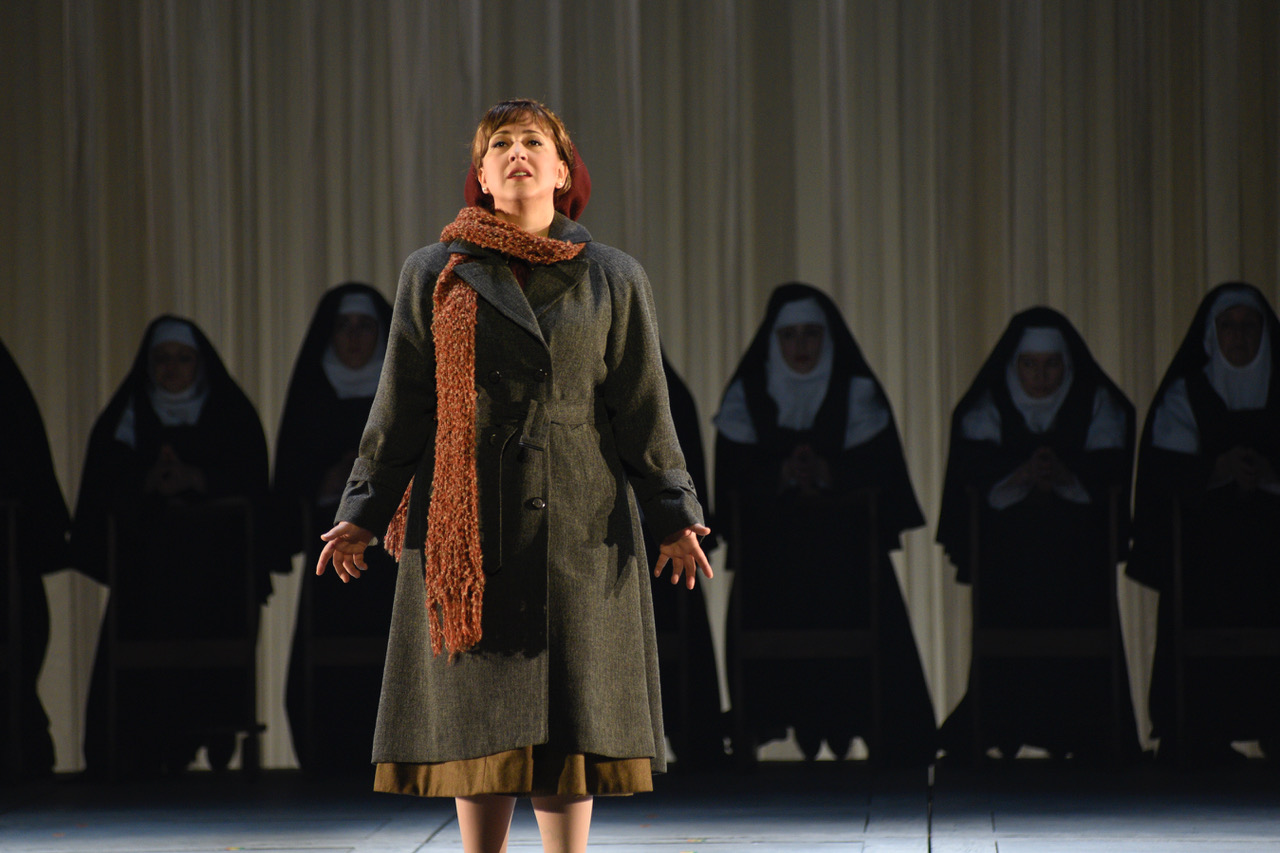
Written by Marianne Ackerman
Many if not most successful plays don’t age well. A cruel truth, if playwrights’ egos count, but hardly a tragedy in any sense of the word. Plays come alive in front of audiences because they respond viscerally to the here and now. Actors walk in front of a hungry crowd and begin to speak. Sometimes a magical explosion occurs. People tell their friends and tickets sell. A mysterious alchemy, impossible to predict or mastermind.
In the case of Angélique, written by the late Montrealer Lorena Gale some 25 years ago, a certain kind of success was immediate. Inspired by the story of a black slave woman accused and hanged for setting fire to Montreal in 1734, the play won the du Maurier National Playwrighting Competition, was nominated Outstanding New Play in Calgary’s Betty Mitchell Awards in 1998, had an off-Broadway run, and much favourable commentary. Since then the work has lived mainly as a text for study.
Only now is the script coming into its own on stage, thanks to the teamwork of two Montreal indie theatre companies, Black Theatre Workshop and Tableau d’Hôte, resulting in a stunning take on a long-neglected work. With an original musical score by the SIXTRUM Percussion Ensemble running live throughout, a mash-up design drawn from 17th and 21st century styles, and a soft dusting of Brecht from director Mike Payette, the result was a revelation when it premiered at the Segal Centre’s studio two years ago. I left the theatre elated, certain the endeavour would enjoy a bigger budget, more rehearsal and pride of place in Centaur Theatre’s 50th Anniversary season. As it turns out, I was wrong, and far too modest in my expectations.
Angélique garnered 10 META nominations and two wins in the Montreal English-language Theatre Awards, including Outstanding Professional Theatre Production. A French translation by Mishka Navigne enjoyed a terrific roar of approval – très belle soirée – as part of Théâtre d’Aujourd’hui’s 50th Anniversary celebration in December. The 2017 production has been revived, and opened in Ottawa last weekend to a standing ovation at the National Arts Centre. After a two-week run, it will head to Toronto’s Factory Theatre. I can’t remember another Montreal theatrical production winning the Triple Crown, certainly not in the same season.
Originally conceived as a proscenium studio production, the seven-member ensemble excelled in the tightrope act of creating an intimate epic. Playing on the NAC’s thrust stage to 897 seats, some finely crafted moments were muted. But the play’s power remains evident. The story is rooted in fact, exposing the role slavery played in early Canadian history, and all the more remarkable considering that Gale wrote before two great books were published on the subject: Le procès de Marie-Joseph Angélique (2004), by Montreal archivist and researcher Denyse Beaugrand-Champagne and The Hanging of Angélique (2006), by historian Afua Cooper.
On the evidence, Angélique was falsely accused; her conviction turned on testimony from a five-year-old. The facts alone would justify a single howl of outrage, but Gale resisted. Her characterization of Angélique is deft and nuanced. Played by the excellent Jenny Brizard, she’s a feisty, adventuresome, generous woman who fights for every shred of agency, no matter how dire the situation. As NAC artistic director Jillian Keiley observed in her programme note, “Angélique is not defined by slavery; this is her brutal reality and lived injustice, but not her identity.”
She’s lippy, smart, strong, generous and funny. One of her best scenes is with the widow (played by France Rolland) of her late master, as she fights for a chance to stay in the household after his death. Two powerless women argue over a dead man who wronged them in different ways; Angélique’s survival skills are superior, if only temporarily. Gale makes us feel for both.
This timely revival of a Canadian classic is a bold endeavour, totally deserving of the attention it is getting. No doubt there will be other productions, different interpretations. It’s no stretch to imagine it working well in French, where poetry is never asked to play second fiddle to the big drums of dramatic conflict. Profoundly feminine in form and content, this is a play whose time has come. The excellent cast consists of Jenny Brizard, Chip Chuipka, Karl Graboshas, Olivier Lamarche, Omari Newton, PJ Prudat and France Rolland. Check here for a complete list of names to remember.




